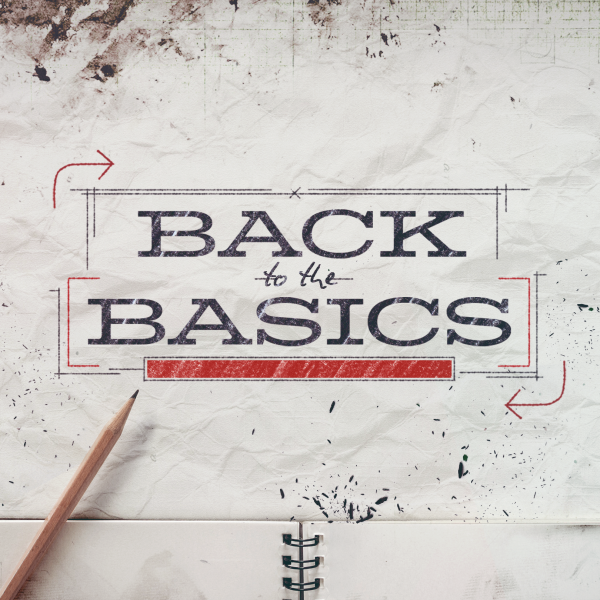Identity: Knowing Whose I Am
1. Describe a time when you were in a difficult or painful situation. How did your perspective on the situation affect your experience, your attitude, or how you responded?
Read: Philippians 1:1-11
2. How would you describe Paul’s perspective in these verses? What emotions does he express toward them? What impacts you about Paul calling the believers “saints”? Do you see yourself as a saint? Why or why not? How does this affect your identity / how you see yourself and live your life?
3. Paul says the Philippian believers are his partners in the gospel. What might he mean?
4. What does Paul mean when he says God will complete the good work He began in them? What is God’s role? What is the believer’s role in this “good work”? How are you experiencing this joint venture in Christ-like character formation / spiritual growth in your daily life? Where are you being intentional? Where could you be more intentional?
5. Paul insists his feelings toward the Philippians are right or appropriate. Why does he have to clarify this? How does Paul explain or defend his positive perspective toward them?
6. How might God’s grace help someone suffer for, defend and confirm the gospel?
7. Paul desires the Philippian believers’ love to abound more and more with knowledge and discernment. How might a lack of knowledge and discernment hinder them from abounding in love?
8. What do we learn about Paul’s perspective on life from his prayer?
9. From this whole passage, how has Paul’s experience of Christ shaped his perspective on life?
10. Think of the Christians that know you best. What in your life would cause them to thank God, rejoice, and have confidence that God is at work in your life?
11. In what ways do you see a lack of good perspective keeping you from abounding in love for God, or for others? Where might you lack healthy perspective in this season of life?
12. What one thing from this brief study do you sense God is saying to you? How can you apply it to your life this week?
Praying Confidently
Share your experiences with prayer:
1. Are all your prayers answered?
2. Do you pray regularly?
3. How do you pray?
4. What hinders you from praying?
Read Matthew 7:7-12
5. What is prayer according to v.7-8?
6. These verses do not only apply to our prayers. They also describe how we are to relate to other people (consider the context in v.1-6). Explain.
7. What does v.9-11 teach you about prayer?
8. What assumptions about God may hinder you from praying?
9. When you pray, what image of God do you have in mind, consciously or subconsciously?
10. How does v.12 fit into Jesus’ teaching on prayer?
11. How will you apply what you have learned into your own prayer life?
When Crisis Comes
1. Share a time in your life when you faced a crisis or a major challenge. What did you do? What was the outcome?
Read 2 Chronicles 20:1-31
2. What was the threat Israel had to face and what was Jehoshaphat’s initial reaction? Can you relate?
3. Admitting that he didn’t know what to do, what steps did Jehoshaphat take facing the looming crisis? Is there any wisdom you could gain from that?
4. Observe how Jehoshaphat prays. Instead of rushing into God’s presence with Israel’s problem what did he do? Why did he start his prayer that way?
5. What can you learn from Jehoshaphat when you turn to God in prayer facing a crisis?
6. How did God answer Jehoshaphat’s prayer? What does it tell you about how God may answer your prayers?
7. Although God promised that the battle is His, the people of Israel still had to obey and do their part. They sing and pray Psalm 136 (v.21). What may God want you to do as you face your crisis?
8. When has God given you reason to rejoice over your enemies?
9. What do you hear God telling you through this story? What do you need to do?
When You Need Direction
1. Who taught you how to pray? Describe how that happened. When did prayer first become your own conversation with God? Describe what prayer means to you today and what role it plays in your life.
Read: Daniel 9:1-19
2. What moves Daniel to pray as he does? What clues do Jeremiah 25:1-14 and 29:10-14 provide? What role does reading the Bible play in how you pray?
3. Take a closer look at v.3. Describe briefly a challenge you are currently facing in your life. How could seeking God provide an answer to the situation? Talk about some ways you could focus more intently on God when you go to Him in prayer.
4. What is the modern-day equivalent to putting on sackcloth and ashes? Have you ever fasted and prayed for something? Why or why not? How did God answer your prayers when you fasted?
5. Daniel talks about pleading with God in prayer…he engaged his emotions when he prayed. Why is it important to incorporate our emotions when we pray? How does strong emotion convey the seriousness of what we’re praying about?
6. Why is it important to humbly confess our sins in prayer? When you pray, what does humility look like to you? How might the discipline of kneeling down during prayer, or lifting your eyes or arms to the heavens, or lying prostrate on the floor, etc. assist you in praying?
7. If many of our problems are caused because we didn’t seek God first, reflect on a time when you ignored God when making an important decision. What was that time like? How did God’s absence make you feel? What did you learn about God? What did you learn about yourself?
8. Read Jeremiah 50:4-5. Why is it important that we pray together as a community of believers? What are some benefits to praying with fellow believers?
9. How have you sensed God speaking to you through this study? What are you going to do about it?
Fuel for the Journey
1. Share a memorable story of when you or someone you know ran out of fuel while driving / mowing the lawn / barbequing / using a snow blower, etc. What stands out to you about that experience?
2. We often don’t change when we see the light – we first need to feel the heat…we won’t change until we feel enough pain. Why do you think many of us continue to live an overloaded, stressed-out life? Why don’t we get fed up with it and make needed changes in our life rhythms?
3. Jesus said: “Come to me, all of you who are weary and carry heavy burdens, and I will give you rest. Take my yoke upon you. Let me teach you, because I am humble and gentle at heart, and you will find rest for your souls. For my yoke is easy to bear, and the burden I give you is light.” (Matthew 11:28-30 NLT)
What did Jesus have in mind when He said, “Come to me”? What actions are needed for us to “come to Jesus”? How is this different from society’s solution to getting rest?
4. Describe how being yoked to Jesus could lighten a load you are carrying.
5. Describe how being yoked to Jesus might help you live life at a healthier pace.
6. What is it that you feel Jesus is teaching you at this point in your journey? What do you sense is an area you need to do some growing in your spiritual journey right now?
7. What is the difference between getting physical rest and getting rest for your soul? How are they linked?
8. What is significant about Jesus saying that He is gentle and humble at heart? Why would this give you rest for your soul?
9. How would staying connected to your church family lighten the load in your life?
10. How have you sensed God speaking to you through this study? What are you going to do about it?
Fruitful Living
1. Spiritually, what plant best describes where you’re at in your journey right now: Tumbleweed? Crab apple tree? Weeping willow? Towering oak? Other? Explain.
2. Jesus said: “This is to my Father’s glory, that you bear much fruit, showing yourselves to be my disciples” (John 15:8 NIV). How does Jesus say we are to show that we are His disciples? Who is glorified when we do this?
3. Jesus: “You did not choose me, but I chose you to go and bear fruit – fruit that will last!” (John 15:16 NIV). Who chose whom according to this verse? For what purpose did Jesus say He chose us? How long is this fruit to last?
4. Jeremiah 17:7-8 (NIV) reads: “Blessed is the one who trusts in the Lord, whose confidence is in him. They will be like a tree planted by the water that sends out its roots by the stream. It does not fear when heat comes; its leaves are always green. It has no worries in a year of drought and never fails to bear fruit.” Talk about how you’ve experienced (or not experienced) the truth of this verse in your life.
5. Colossians 2:6 (Philipps) says: “Just as you received Christ Jesus the Lord, so go on living in him—in simple faith. Grow out of him as a plant grows out of the soil it is planted in, becoming more and more sure of the faith as you were taught it, and your lives will overflow with joy and thankfulness.” And in Psalm 1:2-3 (TEV) we read: “They find joy in obeying the Law of the Lord, and they study it day and night. They are like trees that grow beside a stream, that bear fruit at the right time, and whose leaves do not dry up. They succeed in everything they do.” Based on these verses, discuss what you would tell a new believer God says in His word about the secret of growing deep roots? Share some examples from your life or the life of someone you know who lives out what these scriptures say.
6. Jesus said in John 12:24-25 (NASB): “Truly, truly, I say to you, unless a grain of wheat falls into the earth and dies, it remains alone; but if it dies, it bears much fruit. He who loves his life will lose it…” What does this verse say will happen if you give your life to Christ – and what will happen if you don’t? How does a grain of wheat bear much fruit? How do we lose our life in Christ and bear much fruit?
7. Jesus said in John 15:5 (NIV): “I am the vine; you are the branches. If a man remains in me and I in him, he will bear much fruit. But apart from me you can do nothing.’” What do you do to abide (remain connected to) Jesus? Discuss your experience of bearing fruit in Christ and contrast it with the experience of trying to bear fruit apart from Him. Give an example of a time in your life when it was hard to wait for the fruit and the impact your fear and doubt had on the waiting.
8. How have you sensed God speaking to you through this study? What are you going to do about it?
Longing for God Knows What
1. If you could take any kind of journey or trip right now, where would you go? Why?
2. Describe a very powerful encounter you had with God during a time of personal or corporate worship? What made it so?
Read Psalm 84:
3. What longing is the writer of this psalm highlighting in v.1-2?
4. How would you rate your longing for God right now on a scale of 1 (low) to 10 (high)? Why?
5. Why does the Psalmist mention the birds in v.3?
6. How does vs.5-8 point toward a journey of dependence and surprise? What is the importance of having one’s heart “set” on journeying toward God when going through life’s valleys? Why do we have a tendency to want to avoid life’s valleys? How can they be transformative?
7. What’s unusual about “going from strength to strength” on a journey? How and why can that happen in life?
8. Who is the “shield” and “anointed one” referred to in v.9? What’s the significance of the psalmist’s prayer here? What does that mean for us today?
9. What could be so good about being in the Temple courts (v.10-12)? What keeps it from getting repetitious? What do these verses say about what it means to be content in life?
10. Whose walk is blameless? How can our walk be blameless today?
11. What is it that you really want in life? What have you sensed God saying to you? What are you going to do about it?






